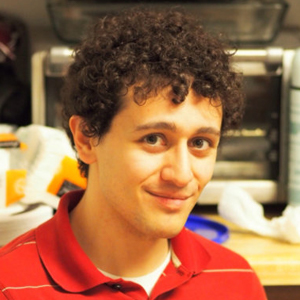Bell recognized for his role in education and society initiatives
The American Society for Biochemistry and Molecular Biology named J. Ellis Bell of the University of Richmond the winner of its Award for Exemplary Contributions to Education.
Bell, a professor of chemistry, has mentored several graduate students and dozens of undergraduates who have gone on to graduate school. He has spent his entire career making huge contributions to student education, especially in the field of biochemistry and molecular biology, where his research interests lie.
 "It’s an honor to receive this award, and I would like to thank the amazing undergraduates with whom I have had the privilege of working over the years — they have been a true inspiration to everything I have tried to do — and my faculty friends and colleagues around the nation who have contributed much to any successes I have had." — J. ELLIS BELL
"It’s an honor to receive this award, and I would like to thank the amazing undergraduates with whom I have had the privilege of working over the years — they have been a true inspiration to everything I have tried to do — and my faculty friends and colleagues around the nation who have contributed much to any successes I have had." — J. ELLIS BELL He has had such an impact on many of these students that they credit him for a large part of their success. Stacy Horner, one of Bell’s students while he was at Gustavus Adolphus College, remarked in support of Bell’s nomination for the award, “From mentoring to teaching me in class and challenging me to think at a higher level, Dr. Bell played a critical role in my development as a young scientist. I am incredibly thankful to Dr. Bell for his guidance and support during my early years in college.”
Bell began his career at the University of Rochester before moving to Gustavus Adolphus College, where he taught biochemistry for 10 years. He joined the University of Richmond in 2001. At each institution, he created biochemistry and molecular biology degree programs that integrate research into learning experiences.
Bell also served as a program director at the National Science Foundation’s Division of Molecular and Cellular Biosciences, where he awarded and managed cutting-edge research programs that provided exceptional training opportunities for undergraduates. He was one of the original members of the NSF’s highly influential Vision and Change working group, which has catalyzed the modernization and incorporation of research into biology education.
Lisa Gentile, a dean at Westminster College, said, “One of the many things I appreciate about working with Ellis is his willingness to brainstorm and then roll up his sleeves to help implement good ideas.”
Bell is the longest-serving member of the ASBMB Educational and Professional Development committee. He founded the society’s Undergraduate Affiliate Network and its newsletter, Enzymatic. The UAN serves undergraduates as a biochemistry club and provides resources for those interested in teaching, outreach and research. Bell also is editor-in-chief of the “ Mentoring in Academia and Industry” series published by Springer Science+Business Media.
Along with all his work toward improving biochemistry education, Bell also maintains an active research program focused on understanding protein structure-function relationships. More specifically, he is interested in how dynamic aspects of protein structure, such as changes caused by post-translational modifications or ligand binding, are involved in both catalysis and allosteric regulation of multisubunit proteins.
“(What) stands out most about Ellis,” Gentile said, “is his commitment to research with a diverse group of undergraduates as well as his commitment to outreach — high-school, middle-school, elementary-school teachers and students. He has always been a willing partner in ventures that touch on any of these areas.”
In just the past five years, Bell’s NSF grants have supported the training of 37 undergraduates, four high-school and middle-school students, and two K–12 teachers.
Enjoy reading ASBMB Today?
Become a member to receive the print edition four times a year and the digital edition monthly.
Learn moreGet the latest from ASBMB Today
Enter your email address, and we’ll send you a weekly email with recent articles, interviews and more.
Latest in People
People highlights or most popular articles

ASBMB announces 2026 JBC/Tabor awardees
The seven awardees are first authors of outstanding papers published in 2025 in the Journal of Biological Chemistry.

Decoding how bacteria flip host’s molecular switches
Kim Orth will receive the Earl and Thressa Stadtman Distinguished Scientists Award at the ASBMB Annual Meeting, March 7–10, just outside of Washington, D.C.

Thiam elected to EMBO
He was recognized during the EMBO Members’ Meeting in Heidelberg, Germany, in October.

The timekeepers of proteostasis
Learn about the cover of the winter 2026 ASBMB Today issue, illustrated by ASBMB member Megan Mitchem.

Defining JNKs: Targets for drug discovery
Roger Davis will receive the Bert and Natalie Vallee Award in Biomedical Science at the ASBMB Annual Meeting, March 7–10, just outside of Washington, D.C.

Building better tools to decipher the lipidome
Chemical engineer–turned–biophysicist Matthew Mitsche uses curiosity, coding and creativity to tackle lipid biology, uncovering PNPLA3’s role in fatty liver disease and advancing mass spectrometry tools for studying complex lipid systems.

